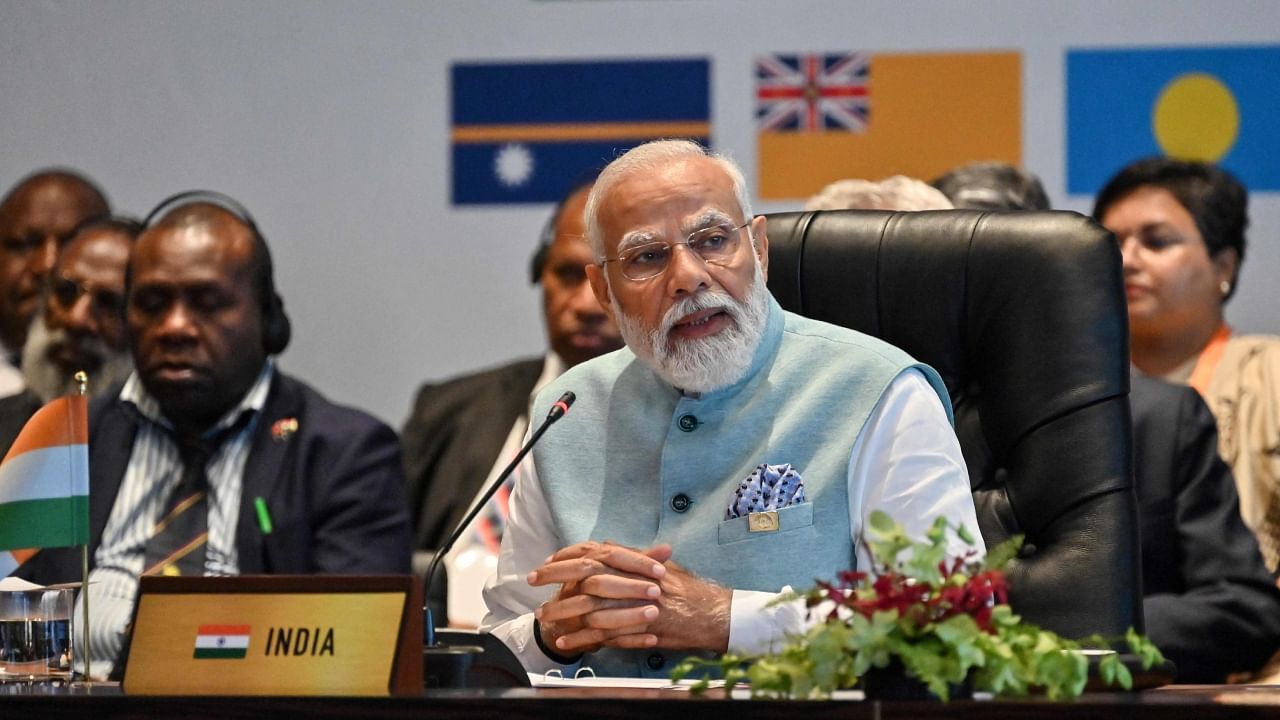
Prime Minister Narendra Modi on Monday underlined the importance of a free and open Indo-Pacific for the Pacific island nations and said the Quad is working in this direction.
In an address at the FIPIC (Forum for India-Pacific Islands Cooperation) summit, Modi also emphasised the need for multilateralism and respecting the sovereignty and integrity of all countries.
The summit took place at a time when China is making efforts to enhance its military and diplomatic influence in the region.
"Like you, we believe in multilateralism; support a free, open and inclusive Indo-Pacific and respect the sovereignty and integrity of all countries," Modi said.
He said the Quad -- comprising Japan, India, Australia and the United States -- is working towards it.
"We are ready to share our abilities and experiences with you without any hesitation -- be it digital technology or space technology, be it health security or food security, be it climate change or environmental protection. We are with you all the way," he said.
Modi also asserted that the voice of the global south should be a priority for the UN Security Council. "For this, reform of international institutions should be our shared priority," he said.
The summit was co-chaired by Prime Minister Modi along with his counterpart from Papua New Guinea. India’s engagement with the 14 Pacific Island Countries (PICs) is part of New Delhi's Act East Policy.
A major part of India's engagement with PICs is through development assistance under South-South Cooperation which is mainly in the form of capacity building and community development projects.
A major initiative launched under the rubric of the Act East Policy for the PICs is the Forum for India-Pacific Islands Cooperation (FIPIC). Prime Minister Modi hosted the first FIPIC summit in Suva on November 19, 2014, during his visit to Fiji.
The second FIPIC summit was held in Jaipur on August 21 again with all 14 PICs taking part.
At that summit, India announced initiatives across a wide array of areas to assist the PICs in facing challenges and achieving aspirations for the well-being and development of its people.